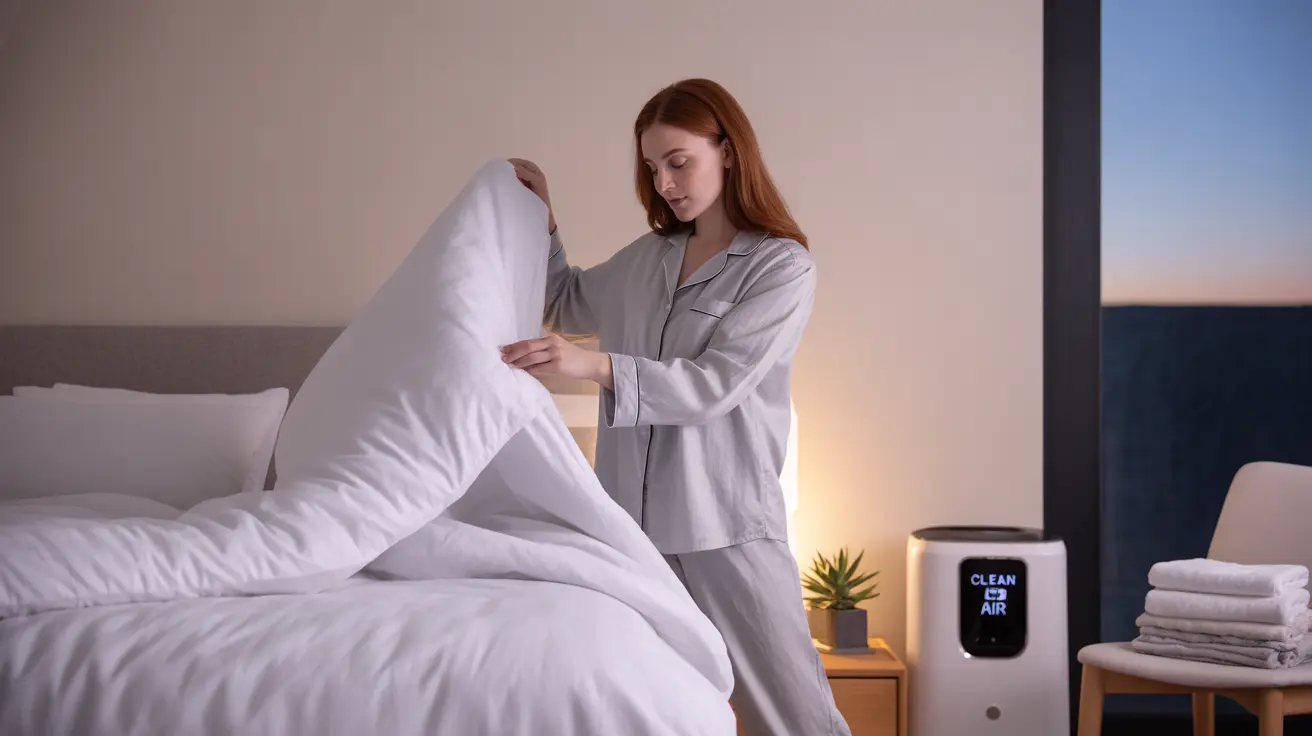If you've noticed your allergy symptoms becoming more severe at night, you're not alone. Many people experience a significant increase in allergy symptoms during nighttime hours, leading to disrupted sleep and increased discomfort. Understanding why allergies get worse at night and how to manage these symptoms is crucial for getting the restful sleep you need.
Let's explore the various factors that contribute to nighttime allergy flare-ups and discover effective strategies to help you breathe easier and sleep better.
Understanding Nighttime Allergy Triggers
Several environmental and biological factors contribute to increased allergy symptoms at night. The bedroom environment, in particular, can harbor numerous allergens that affect your respiratory system during sleep.
Common Bedroom Allergens
Your bedroom can be a collection point for various allergens, including:
- Dust mites in mattresses, pillows, and bedding
- Pet dander accumulated throughout the day
- Pollen that has settled on clothing or hair
- Mold spores, especially in humid environments
- Indoor air pollutants
The Role of Gravity and Body Position
When you lie down to sleep, your body position affects how your sinuses drain. Lying flat can cause mucus to accumulate in your nasal passages, leading to increased congestion, postnasal drip, and coughing. This position can make existing allergy symptoms feel more intense.
Biological Factors Affecting Nighttime Allergies
Hormonal Changes
Your body's natural hormone cycles can influence allergy symptoms. Cortisol levels, which help regulate inflammation, naturally decrease at night, potentially leading to increased allergic reactions during these hours.
Respiratory Changes During Sleep
During sleep, your breathing rate typically slows down, and airways can narrow slightly. For allergy sufferers, this natural process can make symptoms more noticeable and uncomfortable.
Managing Nighttime Allergy Symptoms
Environmental Controls
Take these steps to reduce allergen exposure in your bedroom:
- Use allergen-proof mattress and pillow covers
- Wash bedding weekly in hot water
- Keep pets out of the bedroom
- Use a high-quality air purifier with HEPA filtration
- Maintain optimal humidity levels (30-50%)
Sleep Position Adjustments
Consider elevating your head while sleeping to promote better sinus drainage. Using an extra pillow or adjusting your bed's head position can make a significant difference in symptom severity.
Medication Timing
Strategic timing of allergy medications can help control nighttime symptoms. Consider taking long-acting antihistamines in the evening, after consulting with your healthcare provider about the most appropriate options for your situation.
Frequently Asked Questions
Why do my allergies get worse at night compared to during the day? Allergies often worsen at night due to accumulated exposure to allergens throughout the day, hormone level changes, and the effects of lying down, which can increase congestion and make breathing more difficult.
What indoor allergens in my bedroom can increase nighttime allergy symptoms? Common bedroom allergens include dust mites, pet dander, pollen that has settled on bedding or clothing, mold spores, and various indoor air pollutants. These allergens can concentrate in bedroom environments, especially in bedding and carpeting.
How does lying down or my sleeping position affect allergy symptoms at night? The horizontal position during sleep can cause mucus to accumulate in your nasal passages rather than drain naturally, leading to increased congestion and postnasal drip. This can make allergy symptoms feel more severe.
What are the best ways to reduce allergy symptoms and sleep better at night? Use allergen-proof bedding covers, maintain clean bedding, keep pets out of the bedroom, use air purifiers, elevate your head while sleeping, and maintain proper humidity levels. Regular cleaning and reducing allergen exposure are key to better sleep.
Can allergy medications help prevent or relieve nighttime allergy symptoms? Yes, allergy medications can be effective for nighttime symptom relief. Long-acting antihistamines, nasal sprays, or other allergy medications taken in the evening can help control symptoms throughout the night. Consult with a healthcare provider for the most appropriate medication options.




